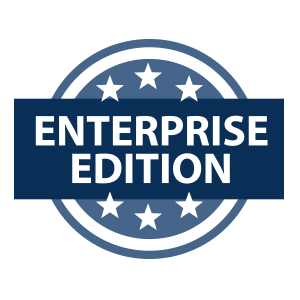Docker
Docker is a containerization technology that enables the creation and use of Linux containers. Containers allow a developer to package an application with all of its dependencies and distribute it as a single package. The Docker container technology is widely used in modern, micro-service architectures.
By concept, Docker images should be lightweight; usually only one application is present and running in the container. Therefore, Docker container logs are written to the standard out and standard error streams and logging must be performed from outside the image.
Configuring logging in Docker
By default, Docker writes logs from each container to a separate JSON file, stored under the container’s directory on the host machine. The logging of containers can be configured in two ways: by modifying the default logging configuration of the Docker daemon, or by changing it in the runtime options for a specific container. For more details about Docker’s logging drivers, see Configure logging drivers on Docker.com.
-
The default logging driver can be set in the
daemon.jsonconfiguration file. This file is located in/etc/docker/on Linux hosts orC:\ProgramData\docker\config\on Windows Server hosts. The default logging driver isjson-file. -
The default logging driver can be overridden at the container level. To accomplish this, the log driver and its configuration options must be provided as parameters at container startup with the help of the
docker runcommand. The configuration options are the same as setting up logging options for the Docker daemon. See the docker run command reference on Docker.com for more information.
Receiving logs from Docker
Collecting logs from a Docker daemon or container is supported in four ways depending on the log driver in use.
To find the current logging driver for a running container, run the following docker inspect command,
substituting the container name or ID for <CONTAINER>.
$ docker inspect -f '{{.HostConfig.LogConfig.Type}}' <CONTAINER>Receiving Docker logs in JSON
With the json-file log driver, Docker produces a line-based log file in JSON
format for each container. See the
JSON File
logging driver guide on Docker.com for more information.
| Because im_file recursively watches for log files in the containers directory, this may cause reduced performance in very large installations. |
This example configuration reads from the JSON log files of all
containers. The JSON fields are parsed and added to the event record with the
xm_json parse_json() procedure. A $HostID
field, with the container ID, is also added.
<Extension _fileop>
Module xm_fileop
</Extension>
<Extension _json>
Module xm_json
</Extension>
<Input in>
Module im_file
File '/var/lib/docker/containers/*/*-json.log'
<Exec>
parse_json();
$HostID = file_basename(file_name());
$HostID =~ s/-json.log//;
</Exec>
</Input>Receiving Docker logs in GELF format
The gelf logging driver is a convenient format that is understood by a
number of tools such as NXLog. In GELF, every log message is a
dictionary with fields such as version, host, timestamp, short and long
version of the message, and any custom fields that have been configured. See
the Graylog
Extended Format logging driver guide on Docker.com for more information.
Collecting Docker logs in the Syslog format
The syslog logging driver routes logs to a Syslog server, such as
NXLog, via UDP, TCP, SSL/TLS, or a Unix domain socket. See the
Syslog logging
driver guide on Docker.com for more information.
Here, NXLog accepts logs on TCP port 1514 with the im_tcp module and parses the logs with the xm_syslog parse_syslog() procedure.
<Extension _syslog>
Module xm_syslog
</Extension>
<Input in>
Module im_tcp
Host 0.0.0.0
Port 1514
Exec parse_syslog();
</Input>Collecting Docker logs from Event Tracing for Windows (ETW)
On Windows-based systems, the etwlogs logging driver forwards container logs
to the Event Tracing for Windows (ETW) system. Each ETW event contains a
message with both the log and its context information. See the
ETW logging
driver guide on Docker.com for more information.
This example collects logs from the DockerContainerLogs Event Tracing
provider using the im_etw module.
<Input in>
Module im_etw
Provider DockerContainerLogs
</Input>Collecting Docker logs via Systemd
Systemd is the init system which is used by many modern Linux distributions. This system includes the journal component for handling log messages. All messages generated by Systemd-controlled processes are sent to journal. Each message contains a number of key-value pairs which can be used for filtering the data.
For more information about configuring Docker to use Systemd for logging, see the Journald logging driver guide on the Docker.com website.
This example collects logs from the Systemd journal component using the im_systemd module.
<Input from_systemd>
Module im_systemd
<Exec>
if not(defined($ProcessName)) drop();
else if (defined($ProcessName) and $ProcessName != 'dockerd') drop();
</Exec>
</Input>
